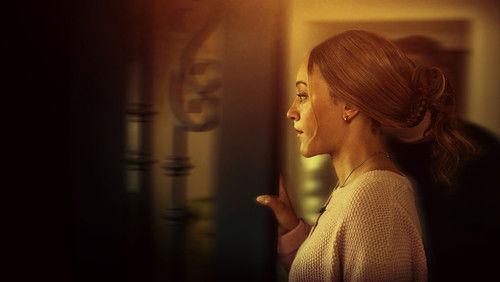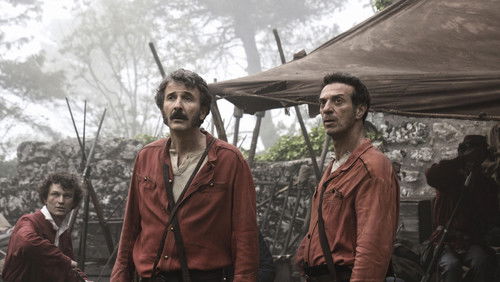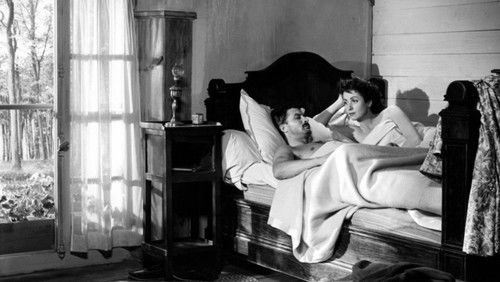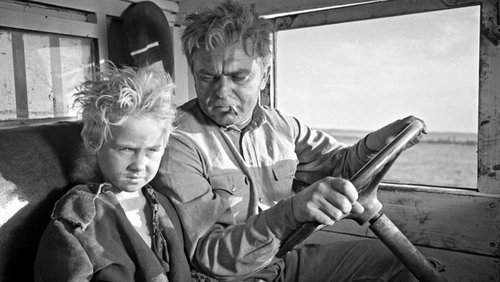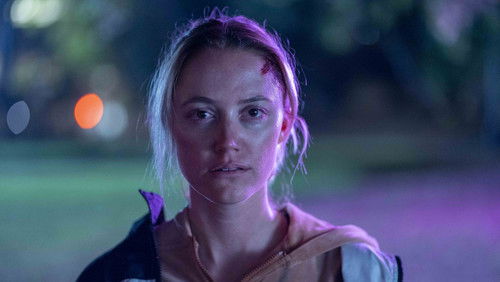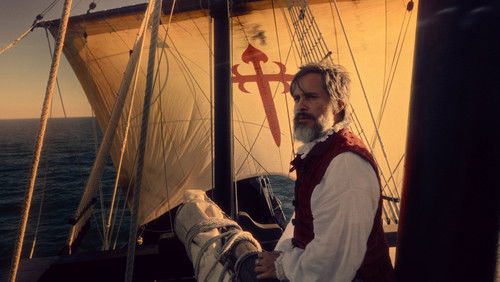Patton: Rebell in Uniform (1970)
41KPatton: Rebell in Uniform: Directed by Franklin J. Schaffner. With George C. Scott, Karl Malden, Stephen Young, Michael Strong. The World War II phase of the career of controversial American general George S. Patton.
“Itu0026#39;s a splendidly done movie. Scottu0026#39;s performance is powerful. He does everything but reach out, grab you by the shirt, and shout in your face. Karl Malden is likable and full of common sense, but he is the only person in the movie whom we can grasp as a character — except for Scott himself. Scott is as good at his job as Patton was, and in fact the quality of his performance is less volatile than Pattonu0026#39;s own, with virtually no weak spots.u003cbr/u003eu003cbr/u003eThatu0026#39;s part of the problem. Patton himself. I suppose that like most people he had a u0026quot;goodu0026quot; side — loving family, played with his dog, collected stamps and whatnot. But as good and aggressive a general as he was, he wasnu0026#39;t a particularly likable guy. Itu0026#39;s easy to demand that everyone in your command have shoes as shiny as yours — especially when youu0026#39;ve got some black PFC doing your shining for you.u003cbr/u003eu003cbr/u003eThe movie is noticeably slanted. Pattonu0026#39;s weakness, like Coriolanusu0026#39;s, is ambition. Sometimes itu0026#39;s played for laughs. He carried the stars of a Lieutenant General around with him until word of his promotion comes down, then immediately has them pinned on. But only three times is his meanness illustrated without tongue in cheek. (1) During a conversation with Bradley he reveals that heu0026#39;s disobeyed orders by sending his army on a mission to beat Montgomery in taking Sicily. He calls the attack u0026quot;a reconnaissance in forceu0026quot;. He receives an order to get his troops back where they belong and tells his aide to send the message back because itu0026#39;s garbled. u0026quot;A simple old soldier,u0026quot; Bradly comments disapprovingly. (2) He orders General Truscott to stage some amphibious landings which will help him take Messina before Montgomery. Truscott complains that theyu0026#39;re not prepared to do that without heavy casualties. Patton lies down and threatens to fire Truscott and get someone else to do the job. (3) While visiting a hospital and presenting the wounded with decorations he comes across a soldier whose nerves are shot and who is weeping, and Patton slaps him twice and sends him back to the front.u003cbr/u003eu003cbr/u003eHis mean streak went beyond those incidents. He used to practice his arrogant, threatening scowl in front of the mirror. Whether or not it improved the GIu0026#39;s morale to wear neckties in combat is, at best, arguable. (What would Patton make of the Israeli army?) But the simple historical fact is that the movie pitches even these u0026quot;meanu0026quot; incidents at the audience like softballs. He didnu0026#39;t just slap a soldier who was feeling sorry for himself, which is the picture the film presents. He slapped two soldiers on separate occasions, one suffering from combat fatigue (which is no joke) and the other from malaria and other illnesses. Patton also enjoyed an intimate relationship with his niece, a Red Cross donut girl, who accompanied him in England and France, much to his wifeu0026#39;s displeasure.u003cbr/u003eu003cbr/u003eThose slapping incidents cost Patton a bit in the way of professional esteem but it didnu0026#39;t cost any lives. And it didnu0026#39;t cause him any remorse. Even in his u0026quot;apology,u0026quot; he claims he was trying to u0026quot;shame a coward.u0026quot; What DID cost lives was Pattonu0026#39;s cobbling together a small task force to liberate a POW camp in Germany shortly before the waru0026#39;s end, when such a dangerous move was no longer necessary. u0026quot;Task Force Baumu0026quot; was recognized by its leaders for the lost cause it was, a plunge deep into enemy territory without any backup. There were 53 vehicles and 294 men. All the vehicles were destroyed or captured. Twenty-five of the men were killed, 32 wounded, and almost all the rest captured. The purpose of the mission, it was tacitly agreed, was to rescue Pattonu0026#39;s son-in-law.u003cbr/u003eu003cbr/u003eHis fitful harshness towards his troops is usually justified in the movie, even if it looks excessive. The soldier-slapping scene is preceded by one in which Patton kneels in the hospital, whispers something to a soldier whose face is covered by bandages, and lovingly places a medal on his chest. Next thing he encounters: Tim Considine, fully dressed, sitting up, and sobbing with self pity. Earlier, when Patton asks a cook why heu0026#39;s not wearing sidearms, the cook laughs genially and replies, u0026quot;Sidearms? Why, hell, General, Iu0026#39;m a cook!u0026quot; I missed the part where cooks learn to laugh in the face of orders from a general, but it gives Patton a chance to tear everybody a new one.u003cbr/u003eu003cbr/u003eEveryone paid for Pattonu0026#39;s ambition and vanity, even those not under his command. The gasoline and other supplies he diverted to his own forces during the run through France helped him alright, but they were also needed elsewhere.u003cbr/u003eu003cbr/u003eThe movieu0026#39;s subtitle is u0026quot;Salute to a Rebel.u0026quot; Very stylish for 1970 audiences, but the material is presented in such a way as to leave us with a lingering admiration for Pattonu0026#39;s genius and bullheadedness. What kind of u0026quot;rebelu0026quot; was he? He was more of an authoritarian Arschloch than anybody else in his greater vicinity.u003cbr/u003eu003cbr/u003eWhat the writers, the director, and George C. Scott have given us, to paraphrase someone else, is not a warts-and-all portrait but the suggestion that there is something heroic about a wart.u003cbr/u003eu003cbr/u003eI gave the movie high marks because itu0026#39;s as well done as it is — disregarding its relationship to Patton himself. I didnu0026#39;t mind so much that the wrong tanks were used and that the production could only find two Heinkel 111s in flying condition. The location shooting is great, the cinematography crisp and unimpeachable, the score one of Goldsmithu0026#39;s best, and Scottu0026#39;s performance deserved whatever awards it got.”


